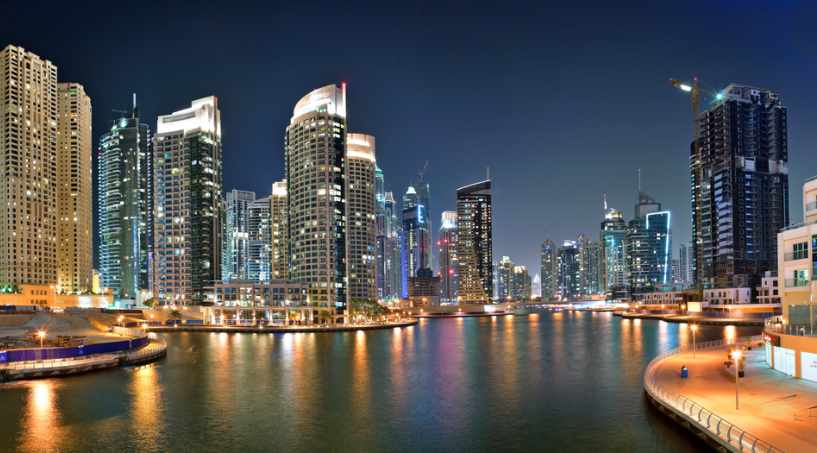Dubai is one of the world’s most attractive destinations for businesses looking to establish a presence in the Middle East. With its strong economy, world-class infrastructure, and favorable tax regime, Dubai has become a hub for businesses from all over the world. At the heart of this success is Dubai’s Tax Free Company zones, which provide businesses with a range of benefits, including tax exemptions, 100% foreign ownership, and ease of doing business.
What are Tax-Free Zones in Dubai?
Tax-free zones in Dubai are designated areas where businesses are exempt from paying corporate and personal taxes. These zones provide businesses with a range of benefits, including tax exemptions, 100% foreign ownership, and ease of doing business, which make them an attractive destination for companies looking to establish a presence in the region. There are several tax-free zones in Dubai, each with its own unique focus and target industries, including:
Dubai International Financial Centre (DIFC)
Dubai Silicon Oasis Authority (DSOA)
Dubai World Trade Centre (DWTC)
Dubai Healthcare City (DHCC)
Dubai Biotechnology and Research Park (DuBiotech)
Benefits of Setting up a Business in a Dubai Tax-Free Zone
Dubai’s tax-free zones offer businesses a range of benefits that make them an attractive destination for companies looking to establish a presence in the region. Some of the key benefits include:
Tax Exemptions: As mentioned earlier, businesses in tax-free zones are exempt from paying corporate and personal taxes. This makes Dubai an attractive destination for businesses looking to minimize their tax burden.
100% Foreign Ownership: In a tax-free zone, foreign investors can own 100% of their business, unlike in other parts of Dubai where they are required to have a local partner. This gives businesses greater control over their operations and more flexibility in making decisions.
Ease of Doing Business: Dubai’s tax-free zones are designed to make it easy for businesses to set up and operate. The bureaucracy is minimal, and the process of obtaining licenses and permits is straightforward. This makes it easier for businesses to their UAE Company Formation and focuses on growing their operations.
Access to Markets: Dubai’s tax-free zones provide businesses with access to local, regional, and global markets. This makes it easier for businesses to expand their reach and tap into new markets. With the help of Dubai’s tax-free zones, businesses can easily access the Middle East, Africa, and South Asia (MEASA) region, one of the fastest-growing regions in the world.
Infrastructure: Dubai’s tax-free zones are equipped with state-of-the-art infrastructure, including modern office spaces, warehouses, and industrial facilities. This provides businesses with the facilities they need to operate effectively. In addition, many of Dubai’s tax-free zones also offer a range of support services, such as legal and accounting services, that can help businesses operate more efficiently.
The Process of Setting up a Business in a Dubai Tax-Free Zone
The process of setting up a business in a Dubai tax-free zone is straightforward and designed to be as efficient as possible. The steps involved in setting up a business in a Dubai tax-free zone include:
Choosing a Tax-Free Zone: The first step in setting up a business in a Dubai tax-free zone is to choose a zone that is best suited to your business needs and objectives. There are several tax-free zones in Dubai, each with its own unique focus and target industries, so itis important to choose the one that is right for your business.
Selecting a Business Activity: Once you have chosen a tax-free zone, you will need to select a business activity that is permitted within that zone. This will depend on the focus and target industries of the zone you have chosen.
Obtaining Approval: Once you have selected a business activity, you will need to obtain approval from the relevant authority for that tax-free zone. This usually involves submitting an application and providing relevant documentation, such as a business plan, trade license, and visa applications.
Registering the Company: Once you have obtained approval, you will need to register your company with the relevant authorities. This involves providing information about your company, such as its name, structure, and shareholders.
Obtaining Business Licenses: Once your company has been registered, you will need to obtain the necessary business licenses and permits. This may include a commercial license, trade license, and visa for any foreign employees.
Renting or Purchasing Premises: Once you have obtained all the necessary licenses and permits, you will need to find premises for your business. This may involve renting or purchasing office space, warehousing, or industrial facilities, depending on your business needs.
Setting up Operations: Once you have found premises for your business, you can begin setting up operations. This may involve hiring staff, purchasing equipment, and establishing relationships with suppliers and customers.
Conclusion
Dubai’s tax-free zones are a key factor in the success of the city’s business ecosystem. With their tax exemptions, 100% foreign ownership, ease of doing business, access to markets, and state-of-the-art infrastructure, Dubai’s tax-free zones provide businesses with the ideal environment to establish and grow their operations. Whether you are a start-up or an established business looking to expand into new markets, Dubai’s tax-free zones are an attractive destination that can help you achieve your goals.
